It’s flu season and as predicted and anticipated, H1N1 is back and stronger than before. This extra nuisance gives little indication over who it will strike down and who it will simply inconvenience… but it does seem to have a particularly strong affinity for children. And one way or another, every single one of us is going to be exposed to it. We are all potential host of this virus and we all will have the opportunity to unknowingly passing it along until the virus has neutralized itself within our collective systems.
Sound scary? Well, it should. Let’s say that 25% of us come down with those uncomfortable flu systems. And let’s say that of those 25%, half will need IVs for dehydration, a common side effect of flu. What would happen in your city’s hospital system if more than 10% of the total population needed some sort of medical assistance? That’s a 10% excess rate — a percentage of people needing services over the usual load of illnesses and injuries. And what if your child is the one of the ones who becomes REALLY ill?  What will it be like to get them care within a system that is that overburdened? If the situation turns life-threatening, does your medical facility have the resources, equipment, and experience to handle advanced flu-related symptoms and infections? And can they carry all of that out with a significant increase in patient demands on the system?
But good news! WE HAVE A VACCINES! One for seasonal flu and (impressively!) one specific to H1N1. It’s effective. It’s safe. It’s being made in large numbers and supplies are available or en route to your city! WOW.
So seriously. I respect individual rights to make decisions. I do. Truly and honestly. And while there ARE good reasons for a few people to think about passing up a life-saving vaccine that not only protects them, but everyone around them — for the vast majority of us hemming and hawing and doubting and worrying, the decision is a really easy one to make.
You get the damn shot.
I’m not your doctor and I’m not open to any liability, so I’m not going to sugar-coat it. Here is the advice from the Center for Disease Control and the American Academy of Pediatrics. Here is what your doctor would say if they weren’t obligated to neutral, open, and supportive bedside manner:
Get the damn shot.
Okay, okay, there IS a caveat. Some people are considered priority in the vaccination recommendations. If you’re young and not around kids and don’t work in medicine and have no other health issues and have little history of getting seasonal flu ever… well, maybe y’all could hang out for awhile. Just until we use our supplies to those more likely than you to get sick and pass it around. But the rest of us? Let’s get in line.
But let me back up a bit. This is NOT judgmental or crazy or blaming. I’m a straight up person and I’m calling the spade a spade.
I understand that it is hard to make a choice about things like vaccines and viruses and strains all over an illness that we’ve all had, or we think we’ve had, at one time or another. The fact that it is so familiar (what’s a little flu?) minimizes it’s importance in our minds. When faced with a “choice” to vaccinate, we take on the responsibilities that come with it whatever we decide. We must weigh the cost of the inconvenience, the fee, the appointment… and any risk, no matter how minuscule. The perceived risk of flu seems less innocuous than the unidentified maybes and pseudo-scientific rumors of getting a shot. After all, we’ve all had flu risk in the past. Why not just take flu risk again? Save myself the hassle?
The “decision” of whether or not to get a flu shot, particularly with a novel virus spreading, is not just a personal decision. It’s not just about you. The decision, your decision, impacts not only you and your family — it impacts EVERYONE AROUND YOU. Personally, I feel that part of considering the responsibility of whether or not to vaccinate includes considering the responsibility we have to our communities, friends, neighbors, and relatives. The plain and simple reality is that vaccines save lives.
An excerpt from Slate:
One of those who died in Colorado was 8-year-old Joseph Williams. He had been perfectly healthy before the sudden onset of a stomach ache and high fever. His parents took him to the emergency room, believing they would bring him home quickly, but a brain inflammation brought on by the influenza killed him in hours.
The day after Joseph’s death, his parents held a tearful news conference to beg everyone in the community to get flu shots. If more people had been vaccinated, they argued, their child might have never contracted the infection in this first place.
Damn straight.
One of us — you, me, my kid, your kid, the woman at the deli, the UPS delivery guy, your newborn niece — anyone of us could be the next one who falls suddenly and irreversibly ill. And the risk of that happening is much, much greater than any risk from a vaccine.
To address some common concerns:
Worried about thimerosal? Read this. There are different kinds of flu vaccine, some without preservative. Vaccine for children under age 2 is preservative-free — just as all routine vaccines have been since 2001. If you’re concerned, find out which vaccines are being given, to whom, and at which locations. Ask questions.
Have a homeopathic treatment?  If it makes you feel better, great. Just don’t think you’re protected, or that you’re protecting anyone else.
What about antivirals? Antivirals (oseltamivir = Tamiflu, or zanamivir = Relenza) are recommended for folks who have serious symptoms. A recent British study recommended extreme caution in it’s use, as the side effects of the antivirals are often worse than the actual flu. Antivirals temporarily prevent a virus from doing what it needs to do to reproduce in your body… it doesn’t stop you from getting the flu forever. It’s not a substitute for vaccine.
Think a shot gave you or your kid the flu? Young children are more likely to have mild side-effects from a vaccine (things like fatigue) because their bodies have a lot more work to do to build immunity. Those side effects will minimize as the kids grow older and have more illness exposure and greater immunity. But no, no, no, for heaven’s sake NO — you cannot get the flu from the flu shot! If you developed the flu after a shot, it was because you already had it.
How many to get? For the novel H1N1 virus, 2 doses are recommended for young children because they are not “immunologically primed” — this means that they have had limited flu exposure in the past and therefore do not have a lot of antibodies built up in their systems.
What’s the whole thing about paralysis and flu vaccine? In 1976, 35 million Americans were vaccinated against a flu that broke out in New Jersey (a H1N1 swine flu) which ended up not having the mutations necessary to cause an epidemic, despite a widespread public health warning campaign. Those vaccinated were tracked very closely and seven cases of Guillian-Barre Syndrome were reported within 10 weeks of the vaccine. Just because you are diagnosed with something after a vaccine does not mean that the relationship is causal (that one caused the other), it means it’s temporal (one happened to come before the other). If you have a car accident at noon and happened to eat breakfast that morning, your eating breakfast didn’t necessarily have anything to do with your car accident. Nonetheless, the cases of GBS were studied to great degree. No evidence of causation has ever been shown, despite research which included an active GBS surveillance program through the early 80s that showed no association and no risk of GBS from vaccinations.
For those in New Orleans:
To my knowledge, supplies of the 2009 H1N1 vaccine are not yet available in our community. However, the seasonal flu vaccine IS… and it’s not too late to head it off.
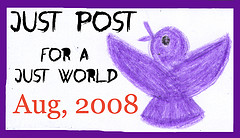
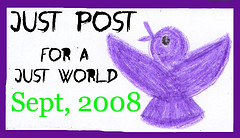
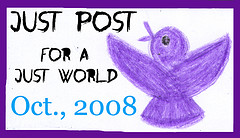


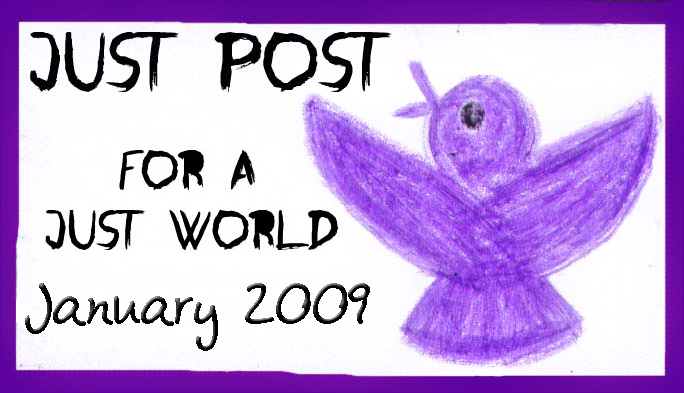
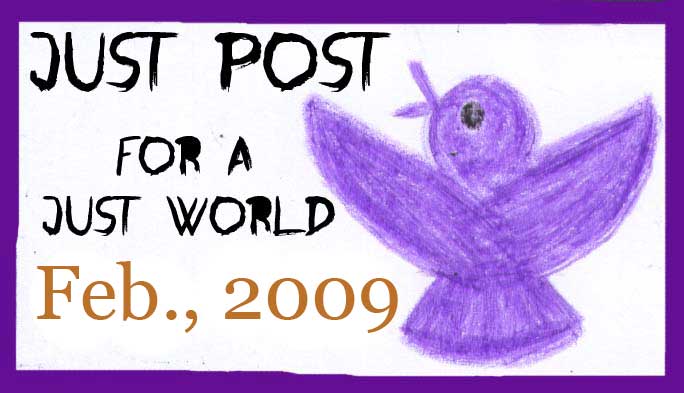








eli | 22-Oct-09 at 7:34 pm | Permalink
Holly,
What about those of us with kids with allergies who cannot get the flu shot? Wylie’s egg allergy and skin disease keeps him from safely getting the shot. I totally agree that it is a very useful vaccine. I agree it’s a matter of people staying healthy and cutting down on the strain on the health system.
So if I could line my child up safely I would but I can’t.
-eli
Emily R | 22-Oct-09 at 8:07 pm | Permalink
We cannot get it here yet. Sigh. Lilah can’t have it at all b/c of her egg allergy and she’s too young for flu mist (which is safe for egg allergic kids).
elena | 22-Oct-09 at 10:09 pm | Permalink
Holly-
Thanks for posting this. I had two demoralizing trips to the pediatrician this week where we saw a 4-hour line (on Sunday) and 2 hour line (on Tuesday) for seasonal flu vax for Stella. Our ped doesn’t do appts for flu shots, it’s an open clinic where people wait outside in 40 degree weather…with children…in a line through a busy parking lot. We didn’t stick around either time and I was planning to just say screw it to this whole damn racket (even though I know better)…not to mention the hysteria that is surrounding our H1N1 clinics up here (500 ppl in line before it opened and this is for kids and immunocompromised only) b/c my emotions surrounding the hassle got the best of me. Anyway, your post is helping to ground me. Stella needs it, I (as a doula/pseudo-health worker) need it, Steve (as a frequent flyer) needs it. I just need to suck up the hassle and roll up my sleeve.
kitty | 22-Oct-09 at 11:35 pm | Permalink
Excellent post, Holly. I’m getting the immunization as soon as I can get my hands on it. Wish I could get my husband to take it. He’s convinced it is lethal. LOL.
Glad you mentioned the antivirals aren’t a substitute for the vaccine. A lot of people don’t know that.
Best of the 2009 Just Posts: The Semifinalists « collecting tokens | 27-Feb-10 at 7:56 pm | Permalink
[…] Get It? Got It? Good. by Holly at Cold Spaghetti […]
Cold Spaghetti :: The Best of the Just Posts for 2009: Semi-finalists! | 27-Feb-10 at 8:56 pm | Permalink
[…] Get It? Got It? Good. by Holly at Cold Spaghetti […]